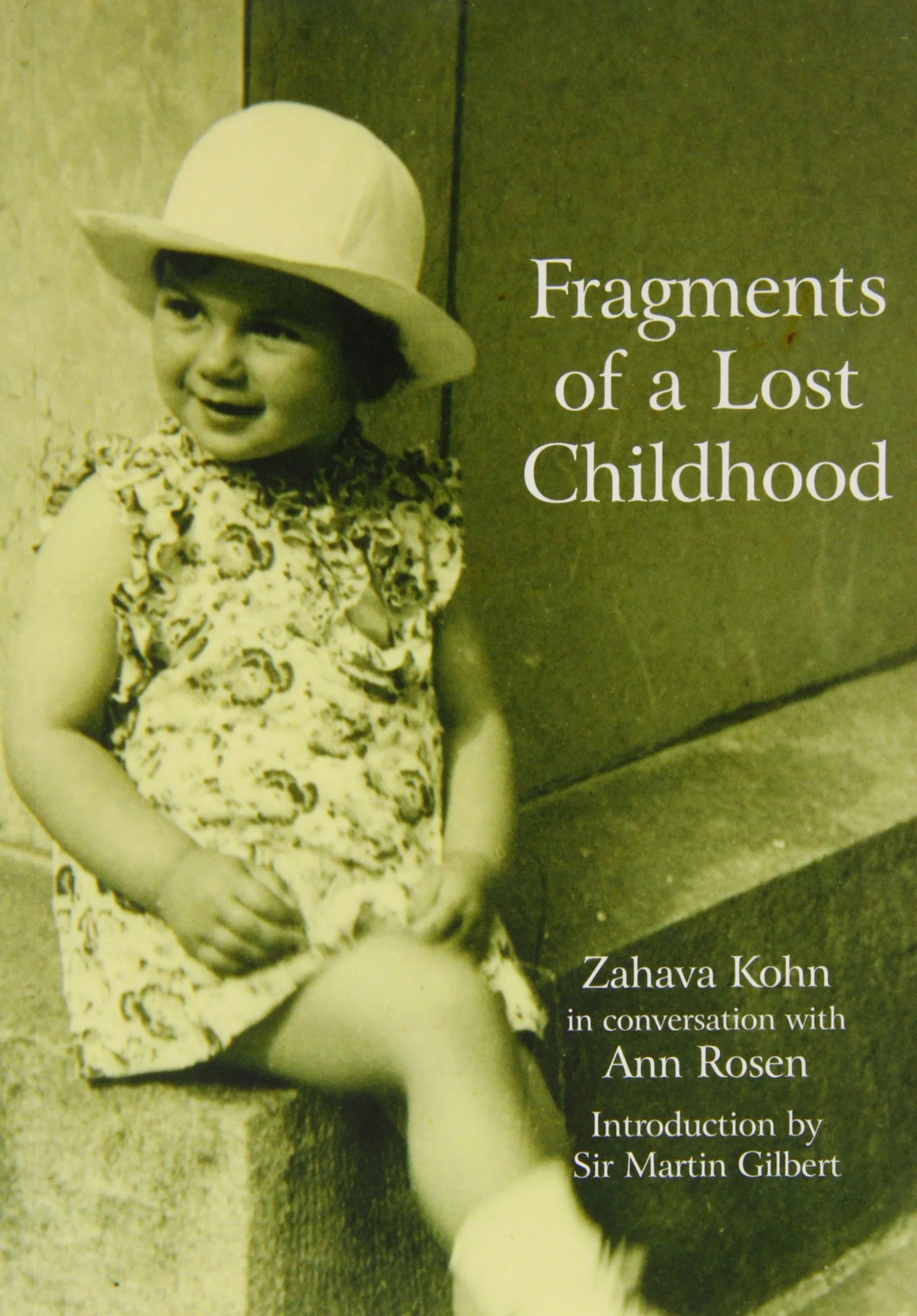Fragments of a Lost Childhood
In 1944, Rosy Kanarek is imprisoned in Bergen-Belsen concentration camp, struggling to survive and to protect her young daughter, Zahava, from the horrors around them. Sixty years later, Zahava opens the suitcase her mother left hidden at the back of a cupboard. It reveals a remarkable archive – documents, photographs, and letters from the wartime years, all perfectly preserved. The discovery prompts Zahava to revisit the past and finally break her lifelong silence about her family’s incredible journey from the depths of despair to hope…and survival.
In 2009, Zahava published her memoir, Fragments of a Lost Childhood, based on the remarkable documents she found after her mother’s death in 2001. The book traces her journey from a traumatic childhood in concentration camps in Holland and Germany – and tells of the astonishing twists and turns that enabled her entire immediate family to survive in the bleakest of conditions.
What makes this book particularly poignant is that it was the death of Zahava’s mother that brought it to fruition. The book is based on the documents Zahava found secreted in her mother’s flat as she undertook the painful task of clearing it out. This unique archive of perfectly preserved documents, photographs and letters from the wartime years and from the camps, illustrate in a highly personal way, the bitter reality of day-to-day life in the camps. Zahava knew nothing about the existence of these documents until she opened the suitcase in which they had been stored.
She suddenly realized her late mother had gone to extraordinary lengths – and taken huge risks – to ensure their story should never be forgotten. This discovery moved Zahava to take a risk of her own and respond to her own daughter’s pleas to finally share her story – not only with her immediate family but with the wider world and in particular, the younger generation, while there was still the opportunity to do so.
“The story of Zahava’s journey – from Palestine to Amsterdam and the concentration camps of Westerbork and Bergen –Belsen, and from persecution to survival – has never been told before. It is a remarkable and deeply moving story, but what makes it very special is the amazing wealth of personal letters and documents preserved by Zahava’s mother, the pieces of the jigsaw that gradually fall into place as the story unfolds…”
“This book is moving and uplifting; a cry of pain and hope, and a miracle of survival amid appalling destruction.”
“From the moment I started reading this moving book, it took me back 60 odd years when I, too, as a Jew living in Holland was confronted with hatred. We travelled parallel paths. Zahava, just nine days younger than me, saw what was happening through those same young and childlike eyes. She saw how her enormously resourceful mother – just like mine – steered us through those terrible times with that strong maternal instinct. Both mothers kept all those letters and documents which miraculously survive so that the story of the Shoah could be accurately told. I never knew Zahava despite the fact that we lived together in Westerbork for four months and must have played together, but like her, all those children whom we met in the camps remained nameless afterwards. We both survived because we were extremely lucky and were in a ‘special category’. This is an unforgettable book which I can thoroughly recommend.”
